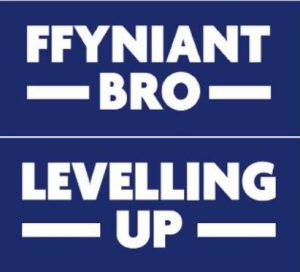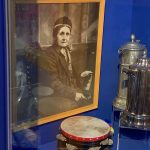From the onset of mining history, women were involved with the mining industry in their support. Female activists in the mining community protested alongside their husbands, fathers and brothers to oppose pit closures. Women held fundraising events and toured around the UK and Europe to get the message across about strike action and the impact on their families.
In 1979 Margaret Thatcher’s government started planning the privatization of coal. In 1980, they replaced coal targets with financial targets which were so high that uneconomical collieries were forced to close. Social security was brought in to stop striking miners from claiming any benefits.
Coal stocks were built up in power stations, coal was imported from non-union ports, and non-union drivers were recruited – all in order to cut off the money supply to strikers, making the union finance them instead.
Picketing by men and women
During the 1980s the mining industry changed forever. Men and women left behind traditional roles and became politicised by the bitter clashes between the working classes and the Conservative Government, led by Margaret Thatcher, who branded the miners ‘the enemy within’.
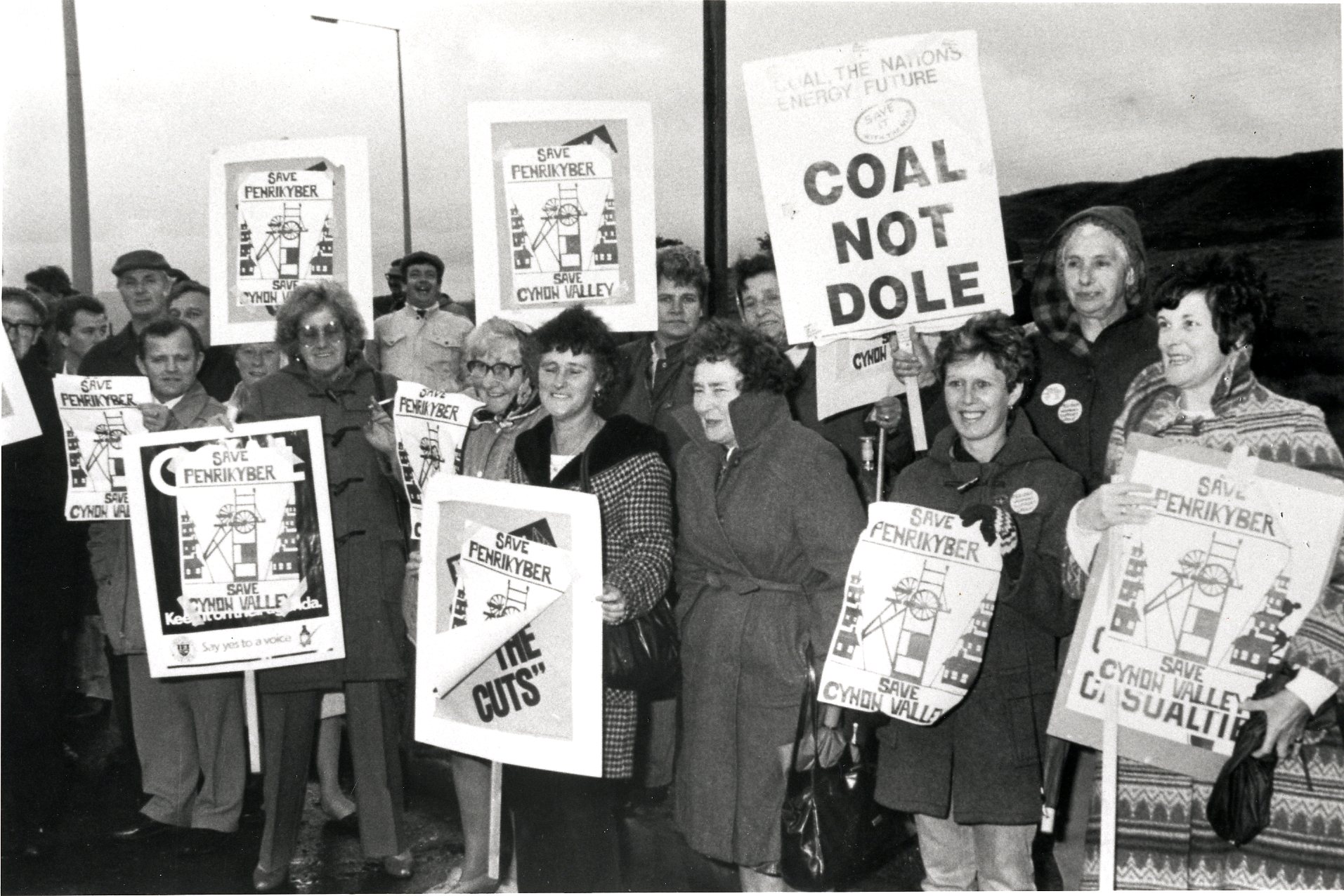
ACVMS 1997.2798 Women protesting to ‘Save Penrikyber’
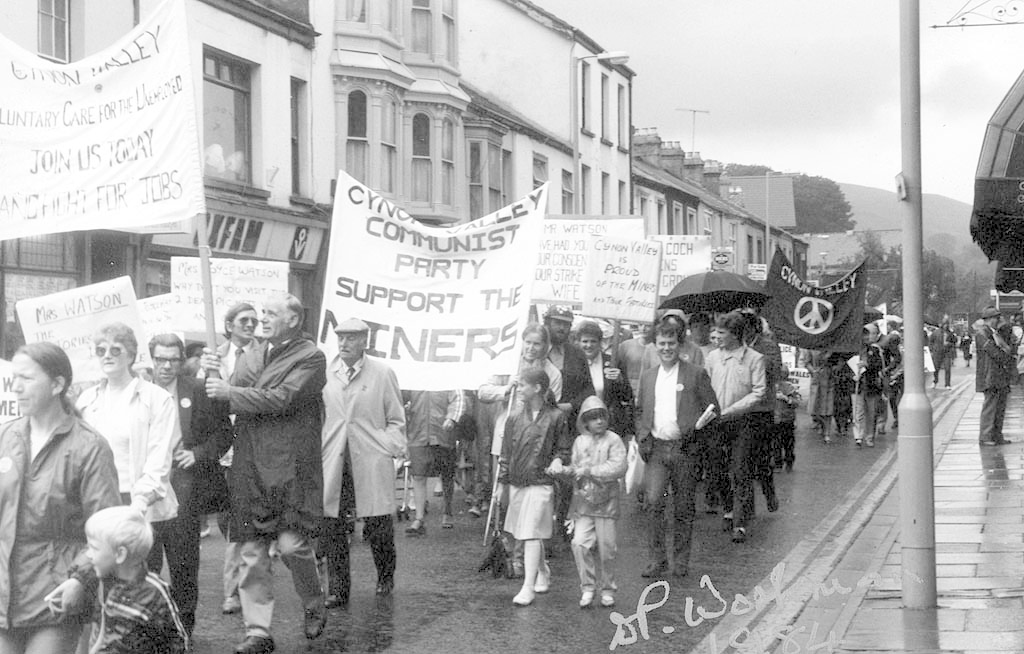
Image 2274. Image reproduced with kind permission by RCT Library and Archive Services.
Tower Colliery Chair, Tyrone O’Sullivan, recalled the impact of women when speaking at an audience across Wales.
He said ‘We saw them growing, we saw them getting up and saying, ‘I am from South Wales and times are hard and its costing’ and ‘we are not here to beg for food but to fight for a cause.’ Welsh Women in the valleys surprised themselves – from being shy at meetings to practically taking them over and getting more claps than the men.
The below image shows Tyrone O’Sullivan (who became Chairman of The Tower Colliery when it was privatised).

Image 05/b/h/011 Tyrone O’Sullivan speaking at the Ynys during the Miner’s Strike, 1984. Image reproduced with kind permission by RCT Library and Archive Services.
The image shows miners surrounded by stocks of food inside Aberaman Hall and Institute. The deliveries were brought from London by lorries from SOGAT (The Society of Graphical and Allied Trades) and distributed to struggling families in South Wales.

ACVMS 2000.862 SOGAT food supplies for miners and their families.
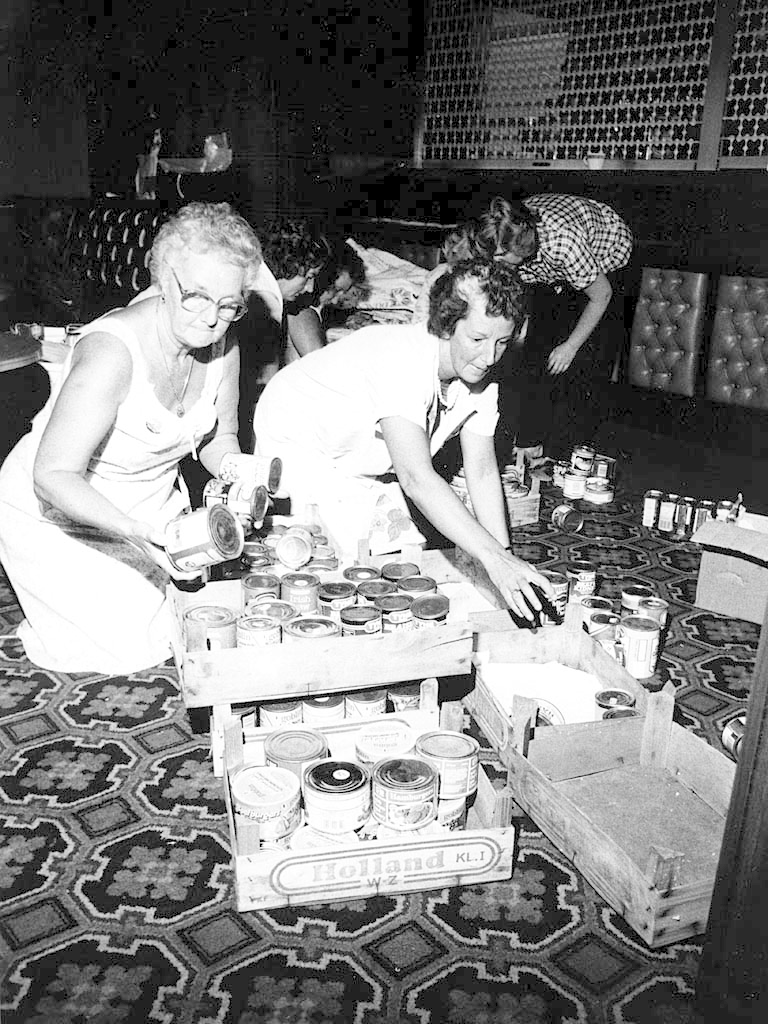
Image 31/c/047 Food parcels being made up for the families of striking miners at the Strike Relief Centre, Penywaun Social Club, 20 August 1984. Image reproduced with kind permission by RCT Library and Archive Services.
Communities support across UK and Europe
The women of the miners’ strike: ‘We caused a lot of havoc’
Like thousands of miners’ wives, Brenda, Liz and Chris stood by their husbands when they went on strike in 1984. But their support went far beyond food parcels – and their days on the picket lines changed their lives forever; apart from the women supporting the miners, for some, families were torn apart.
Brenda Procter from the North Staffordshire Miners Wives Action Group in 1984, ‘I said the strike wasn’t about money but about communities and the future.‘ The 80’s strike not only transformed the industrial landscape of Britain; it radically changed the lives of thousands of other women. Brenda recalls how early on in the strike (which started in March 1984) she was at a meeting in the local pit club where she expected a few other wives to volunteer support, ‘but women turned up in droves wanting to help.’ She says ‘it wasn’t all about soup kitchens and food parcels – though that was important. We wanted to tell people why we were on strike.’
Within weeks, the national ‘Women Against Pit Closures’ campaign was launched. The women of miners’ families were the heart of the epic struggle against the Thatcher government. In March 1984, in Barnsley, 5,000 women from mining villages attended rallies and a few months later 23,000 marched through London. Women were arrested; they also chained themselves to colliery gates across the UK and Europe. There was a great sense of solidarity. However, it came with a cost as well, as some families were split apart by the trauma of the strike action and the pit closures.

ACVMS 1998.3584 women’s Rally poster. Saturday 8th December, Cardiff.
Supporting Politics
Elizabeth Andrews OBE (first women organiser of the Labour Party in Wales). Elizabeth, who was born into a mining family in the Cynon Valley, spoke in the House of Lords in 1918 about the need for pit baths and the difficulties of lives for miners’ wives.
The following is a personal account of a miner, Merlin Hall, an Overman at Tower Colliery, describing his home life: ‘My mother would get the metal bath ready for my brothers and myself in front of the fire in the living room by the time we came home from work. We shared the bath between us, using the same water. Times were hard for my mother, I started in the mines when I was 14 years old. I had to collect the coal from the trips before going to work, and previous to that, before I went to school, whereby I had a cane for dirty hands.’ Times were harsh for males and females.
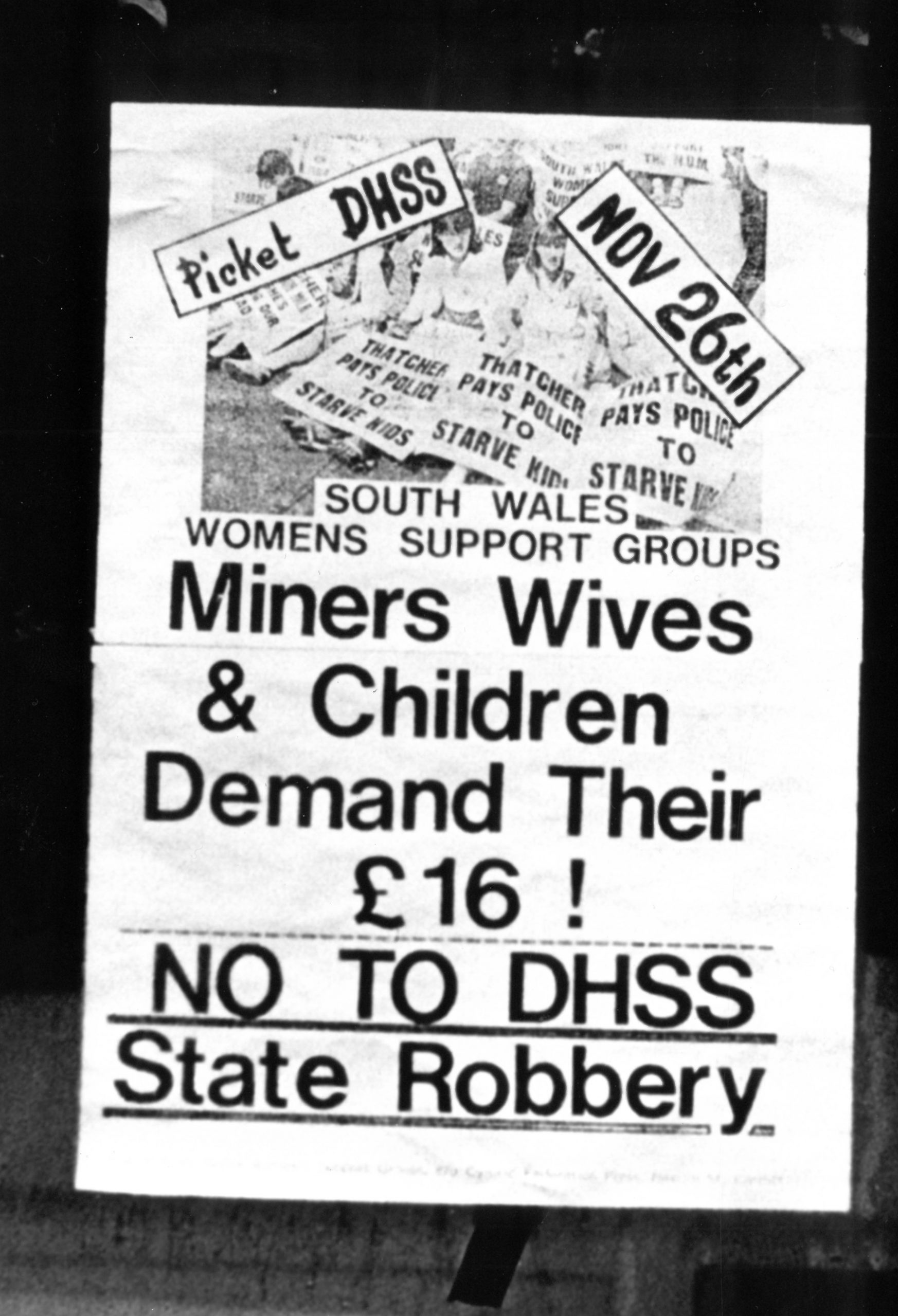
ACVMS 1997.2865 South Wales Women’s Support Group Picket Poster. November 26th.
Ann Clwyd MP- ‘Rebel with a Cause’
When Ann Clwyd was elected as the Cynon Valley MP she was supported by the N.U.M – long-time supporters of women in politics. In her book ‘Rebel With A Cause’ she writes ‘but as the coal industry declined in the later twentieth century, so too did the formerly vibrant Cynon Valley. When I became MP in 1984, one in five people of working age were out of work, creating widespread poverty.’
In 1994, British Coal announced the closure of Tower Colliery. In response, Ann Clwyd MP staged a sit-in at the mine to protest against its closure and highlight the plight of its workers. Ann felt as a local MP that it was her responsibility to fight for the local community, which depended on the mine.
Undeterred, British Coal continued with plans and closed Tower Colliery on the 22nd April 1994, on the grounds that it would be uneconomical in current market conditions. Led by local NUM Branch Secretary Tyrone O’Sullivan, 239 miners joined the ‘Employees Buy-Out’ scheme. Each worker pledged £8,000 from their redundancy, and, even against central government resistance, the £2 million deal was agreed. The pit re-opened on 2 January 1995.
However, Goitre Tower Anthracite finally closed on 25th January 2008, bringing an end to deep mining in Wales. The first drift mine at Tower had been opened by the Marquis of Bute in approximately 1870.
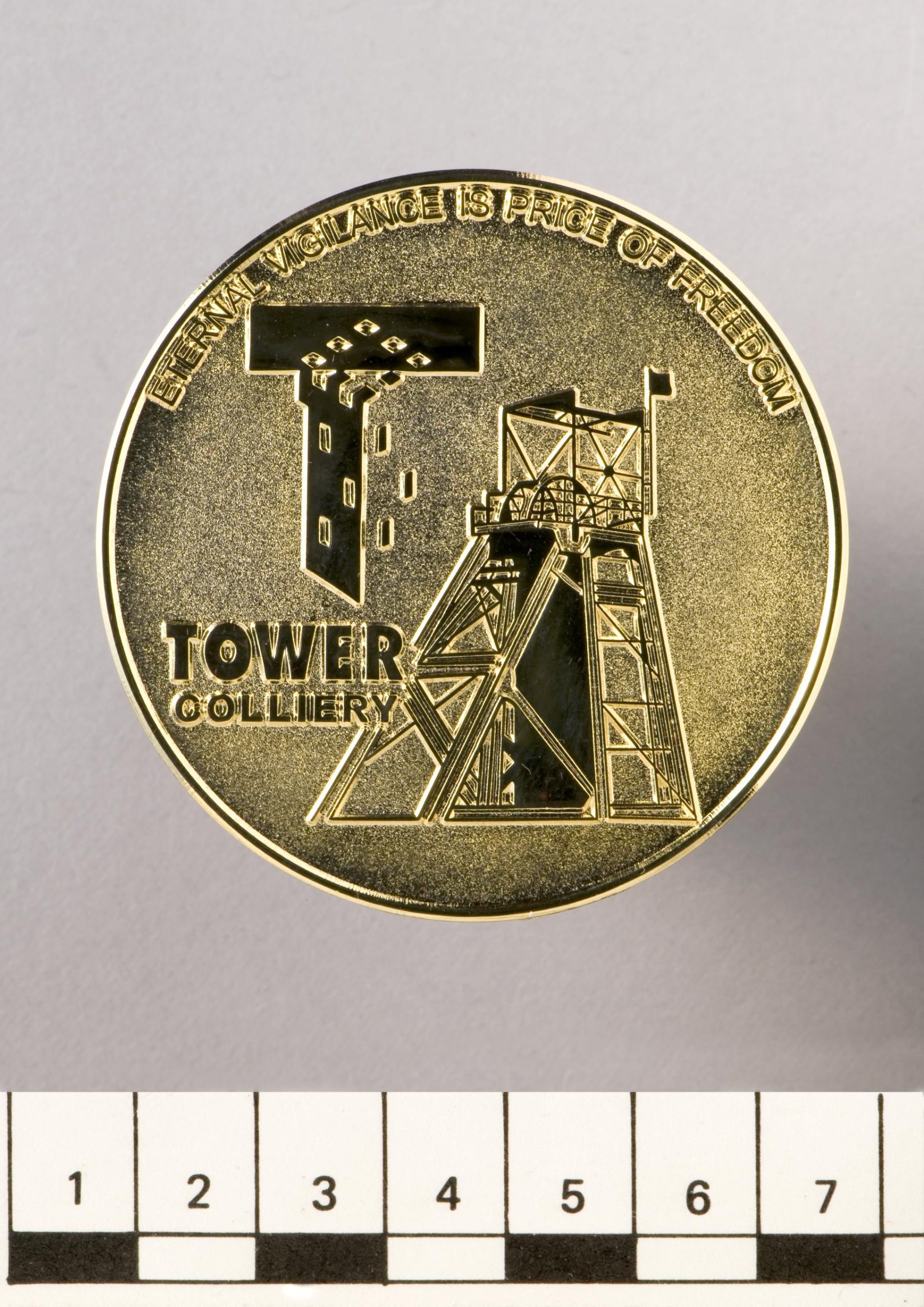
Image 2008.5/01 by National Museum Wales. Medal to commemorate Tower Colliery.
A South Wales MP account
The Welsh MP Hywel Francis of the Wales Congress was in support of the Mining Communities and acted as chair of the local support group in Neath and Swansea Valley. He was also a son of a miner and he said of the strike: ‘In South Wales, where the strike was at its most solid, the emphasis was on pit closures and the effects of community families. The slogan was, ‘kill a pit, kill a community …. We opened up links with the lesbian and the gay movement in London (1984), which was becoming a powerful lobbying group.’ They broadened the case for the miners and their families and went on TV about flying pickets. Once again, women marched with the men. £11,000 was raised in London and a further fundraising event called ‘Pits and Perverts’ organised by The Lesbians and Gays Support the Miners (LGSM) group raised another £5,650 .
An outstanding speaker in these rallies was Sian James (Swansea East MP until 2015) from the women’s group, who spoke at the first London Pride march. The linkup between the miners and gays was turned in a movie called ‘Pride’.
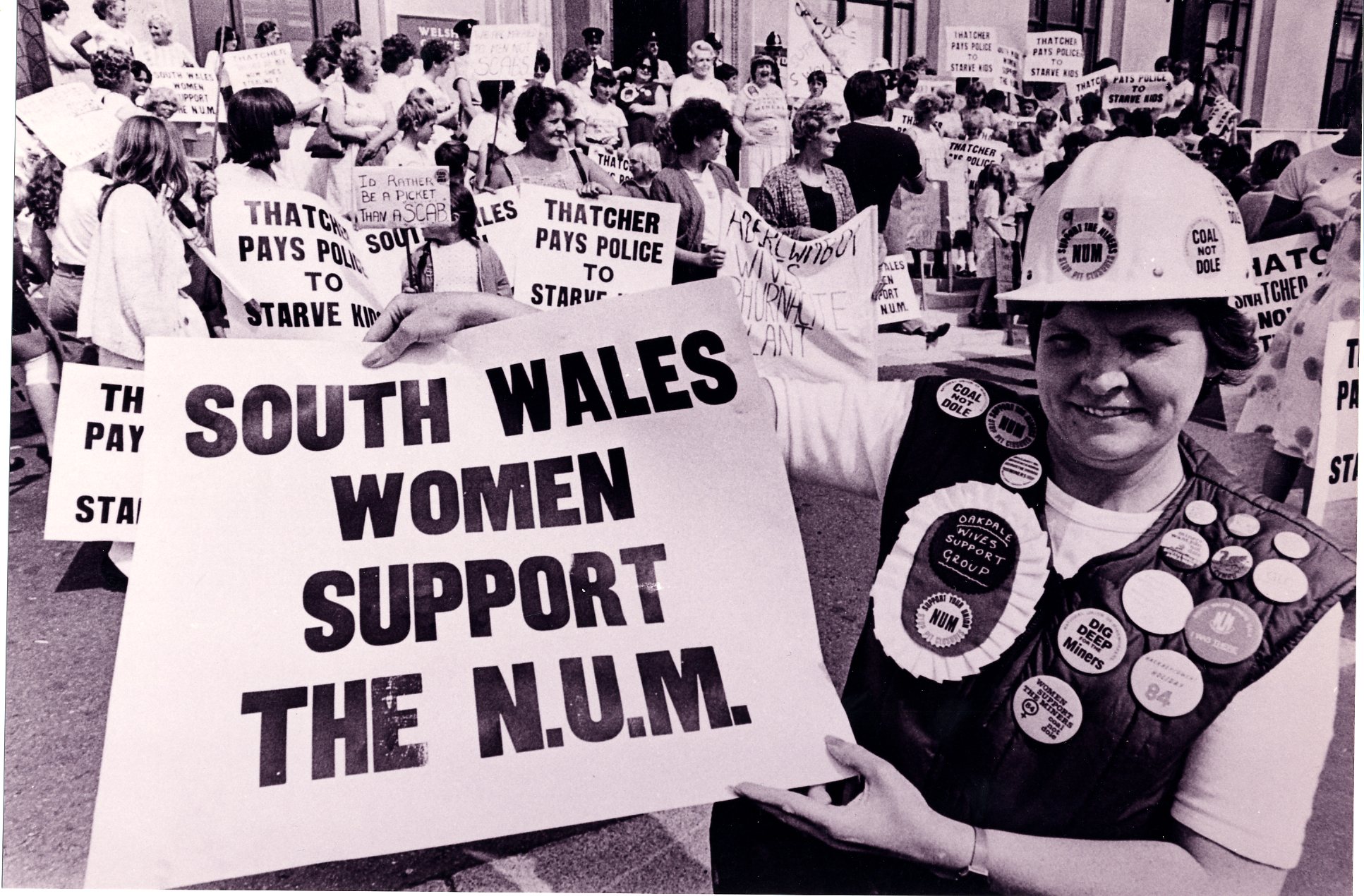
ACVMS 200.869 A rally of women striking to support the N.U.M.
Filming making, documentaries and music that represent the Mining Industry
There is a wealth of folk music, songs and dance associated with coal mining. The living conditions of mining families also feature in songs, as do tales of child labour and poverty. There are many songs about the different jobs and roles that people had and which sadly lament the mining disasters which occurred. Brass bands and choruses were an integral part of valley life in the mining community. You can find out more about Jazz bands and the 1926 strike in the Cynon Valley in our history blog here.
After the Pit Closures
As Margaret Thatcher described miners ‘the enemy within’ during the strike of 1984-85, women played an important part to support the mining community. They helped to express how British families were fighting to survive the government’s break up of such integral communities. In many people’s opinion, the valleys have never recovered following the end of the dispute and the closure of the mines. However, one example of the ongoing power of women is The Dove Workshop, which initially become a woman’s training and education centre. It now has links with the Swansea University-based South Wales Miners’ Library. Furthermore, it was during the 1984-85 strikes that women and the community set up community workshop training centres, a benefit to all.
In 1993, a statue was erected in Tonypandy of a coal miner and his family. The miner is holding hands with his wife, who is also holding their child. This statue commemorates the strength of the family unit, but also how women supported and cared for their husbands and children during times of hardship.
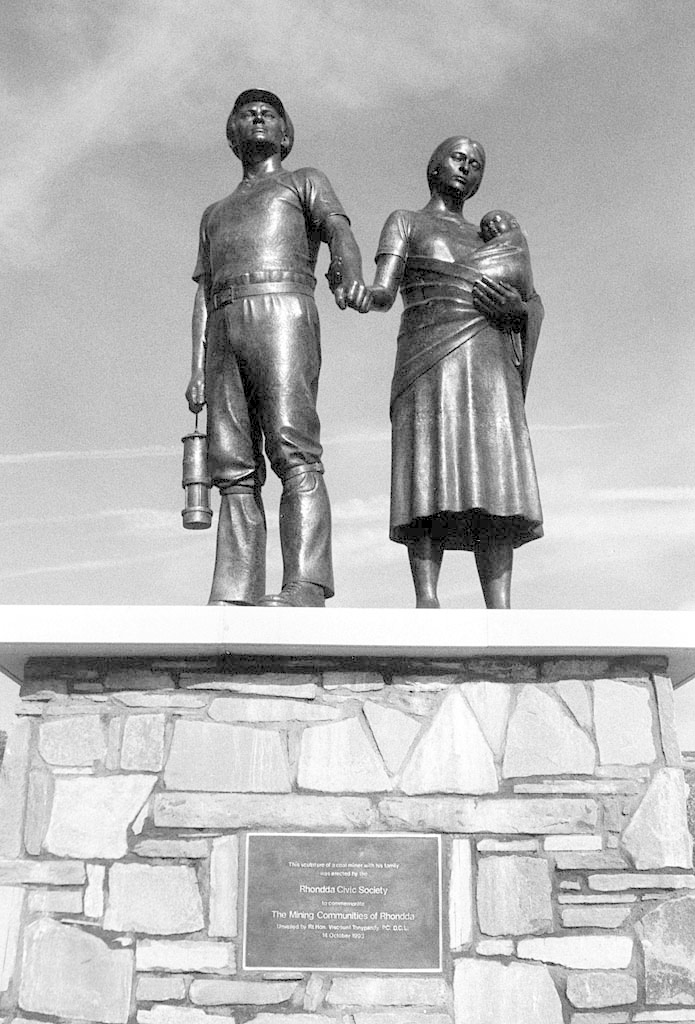
Image 4295. Rhondda Civic Society Statue (Miner with Wife and Young Child), 1993. Black and White, Sculptor: Robert Thomas, unveiled by George Thomas (Viscount Tonypandy). Image reproduced with kind permission by RCT Library and Archive Services.
Conclusion
Overall, it is evident that the working class had significant power. Furthermore, women pulled together to support the men. They have throughout history and women and men will continue to unite to fight together, now and in the future.
Blog post written by volunteer, Wendy Donovan
Further reading
- Elizabeth Andrews- wikipedia.org
- Bryony Griffith and Frances Watt, Exploring coal mining with folk song Tools of the Trade (PDF file) https://media.efdss.org/resourcebank/docs/RB318ToolsOfTheTrade-BryonyGriffith.pdf
- The National Coal Mining Museum for England
- Harriet Sherwood, April 2014, The women of the miners‘ strike: ‘We caused a lot of havoc’, The Guardian Online
- Women Against Pit Closures, https://en.wikipedia.org/wiki/Women_Against_Pit_Closures
- Dorothy Phillips, Women who took centre-stage in a tough battle of beliefs, Western Mail, Wednesday, March 19th,2014
- Tyrone O’Sullivan, How women took the lead in fight for miner’s jobs, South Wales Echo, Wednesday March 19, 2014
- Hywel Francis MP, ‘Better to fight and lose than not have fought at all’., South Wales Echo, Thursday, March 20th, 2014
- Tyrone O’Sullivan, The Strike, Aberaman Hall, South Wales Echo, 2014
- Ann Clwyd, ‘Rebel With a Cause’ Published March 28th 2017 by Biteback Publishing
- Tower Colliery, Hirwaun, Wales, The Time Chamber, Terminal Decline since 2007
- Tower Colliery; no4 Colliery, Hirwaun, https://coflein.gov.uk
- National Museum Wales, Tower Medal Image
- Rhondda Cynon Taf Libraries Digital Archives, Available at: https://archive.rctcbc.gov.uk/home

